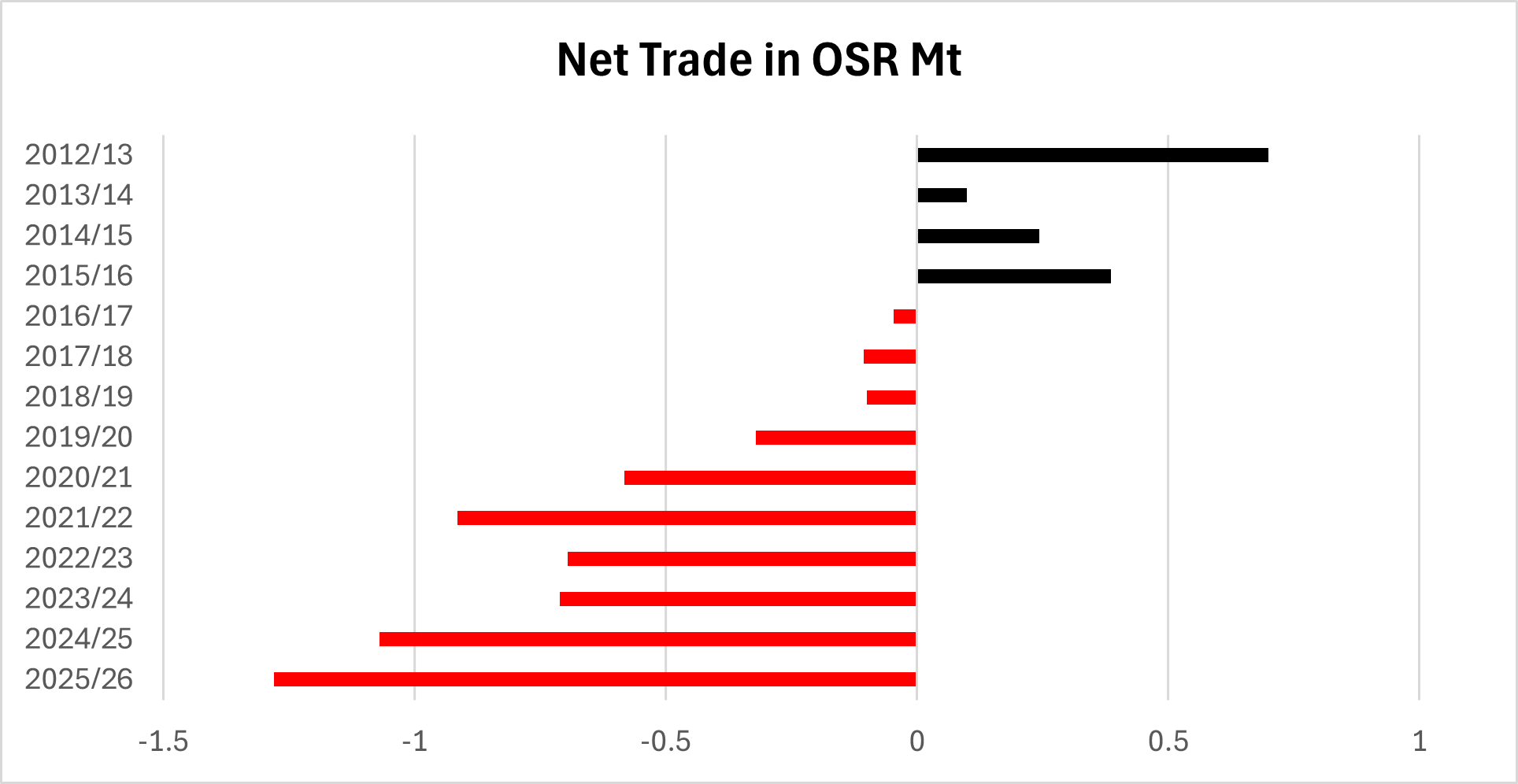
Over the past decade, the UK has experienced a dramatic reversal in oilseed rape (OSR) trade, which underscores the urgent need to revive economic growth. Once a net exporter, the fifth largest in the world to be precise, with close to three quarters of a million tonnes of OSR output, the nation now faces the reality of importing nearly 1.3 million tonnes next year.
This shift amounts to a staggering 2 million tonnes of lost net trade – a figure that equates to just shy of £1 billion in value per year!
To put this into perspective, the DEFRA budget is £2.3 billion, and the total contribution of agriculture to the UK economy is approximately £14 billion.
However, the impact stretches far beyond these figures. Agriculture underpins an intricate value chain that drives growth across multiple sectors. Breeders, agronomists, input specialists, hauliers, traders, and crushers all benefit from a thriving domestic market. When we lose output, we lose the multiplier effect – a powerful force that creates jobs, innovation, and value across the entire economy.

The unlevel playing field
One of the most frustrating factors behind this decline is the unlevel playing field created by global differences in regulation. While the UK has adhered to its decision to ban the use of neonicotinoid insecticides (neonics) in OSR, many of our competitors, such as Australia, Ukraine, and Uruguay, continue to use them, maintaining higher yields and achieving stronger export positions as a result. Even within the European Union, where neonics are officially banned, until very recently several countries secured derogations to allow their continued use. This has left British farmers at a disadvantage, forced to comply with stricter rules while competing against imports produced under significantly less stringent conditions. In essence, we have simply offshored the neonic issue, resulting in even more neonic-treated produce being imported into the UK from across the globe.
This imbalance is one of the key reasons United Oilseeds has launched its OSR Reboot Campaign, which aims to reinvigorate domestic OSR production, providing, amongst other things, farmers with the tools, knowledge, and support they need to restore the UK’s position as a competitive player in the global market. By addressing the challenges posed by regulation, trade disparities, and market access, this campaign is a vital step toward reversing the decline in this critical crop.
The OSR Reboot aligns perfectly with Labour's mission to kickstart economic growth, offering practical solutions to these challenges. It supports UK agriculture by enhancing national food security, stimulating rural economies, and ensuring a level playing field for British producers. Through its focus on innovation, sustainable practices, and fair trade policies, the OSR reboot can drive the revitalisation of both the agricultural sector and the broader economy, turning Labour’s vision into actionable progress.
The challenge is clear: without bold action, the UK risks losing even more ground. However, with the right policies in place, Labour can reignite economic growth, ensuring that British farmers, and all those who depend on them, have the tools they need to compete and thrive.
CATCH UP ON PREVIOUS EPISODES:
EPISODE 1: Why the UK Must Rebuild Oilseed Rape
EPISODE 2: Food Security is National Security
